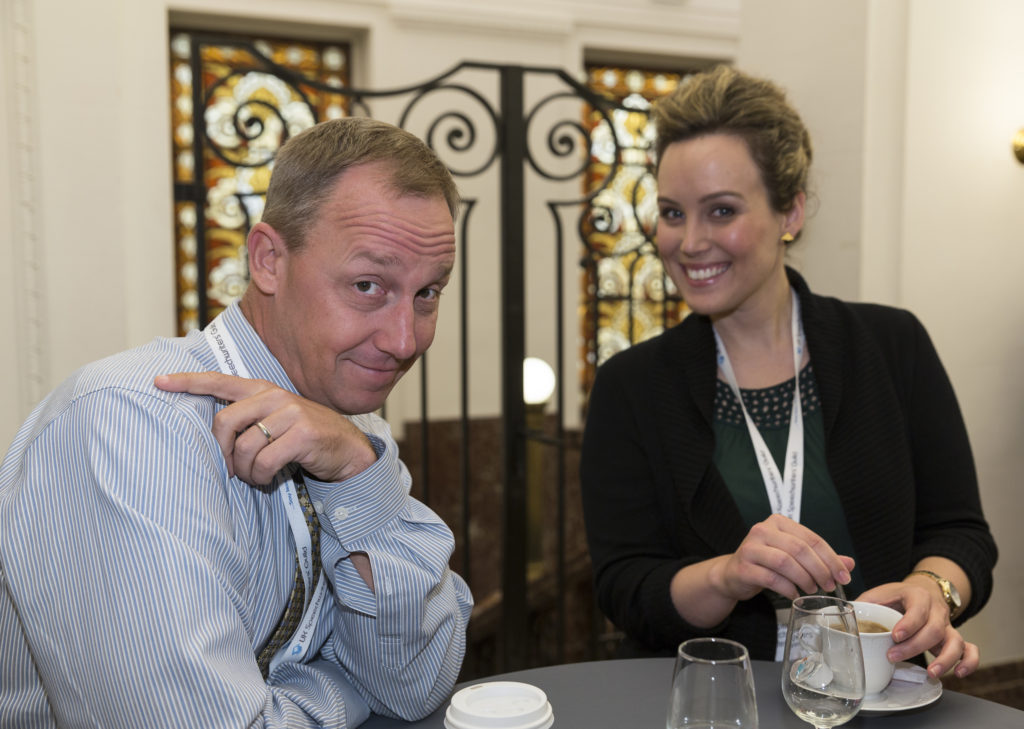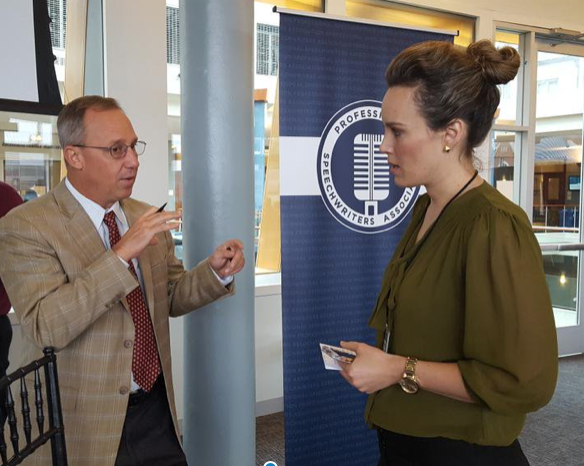Yesterday here we discussed the difficulty of maintaining a coherent culture in a world of indefinite remote work.
I can speak to it because I and two other people have run my tiny company remotely for five years—and run it well, I believe.
In this excerpt from book, An Effort to Understand, I explain what goes into maintaining a meaningful relationship between just two of the handful of folks who contribute regularly at the wee enterprise called Pro Rhetoric, LLC. Try to extrapolate this process to a whole company or team, and I think you see the difficulty clearly.
From the book:
Benjamine Knight is the chief operating officer of the company I run; she oversees all the administration of Vital Speeches of the Day magazine, the Professional Speechwriters Association and all of the events we put on and our events program, the Cicero Speechwriting Awards. You wouldn’t actually believe how much she does for this little company.

When she and I began working together, I assumed the physical distance between us would necessarily limit the nature of our partnership to functional, collegial professionalism. That beats the hell out of its opposite, but it does not build an organization the way that Benjamine and I, to both of our delight, have gone on to build ours.
Isn’t it a bit sterile and quiet and emotionally flat, to IM our way through every day? It would be, if we didn’t do a few simple things also:
We talk every week on the phone—on a two-hour, two-person “staff meeting,” where we always spend the first 15 or 20 minutes catching each other up on our personal lives. Longer, if a family member has cancer or if we just got back from vacation; but almost never shorter, no matter how busy we are. We want to do this—and I think we instinctively knew we had to do this, to make each other real to one another, and to remind each other of our homely humanity. I have weird rash on my arm that I’m going to get checked out if it doesn’t clear up by tomorrow. Her new couch is coming today—finally! I’m not a big fan of my teenage daughter’s boyfriend. She’s worried about her mother’s health.
We see each other six times a year in person, at our own conferences and seminars, and also at an annual planning session, in Chicago or Phoenix. Mixing with one another—and meeting our customers and partners together in person—deepens our bond, and we begin to develop shared colleagues, traditions, jokes and references and institutional lore, which are the building blocks of culture. There was the time in Montreal when our conference was about to start but the two of us were locked in a stairwell. And the seminar in Chicago where I thought to clear the food off the table to make room for the afternoon snack—and realized that what I’d scraped into the trash can was the afternoon snack. And the time I publicly thanked her at the end of the World Conference for being such a mensch, and I cried in front of the whole assembly. Oh right, that’s every time. And you can’t do it on IM.

What you can do on IM is be accountable to one another day to day and hour to hour. When Benjamine starts work in the morning—a couple of hours after I start, thanks to the time difference—she says good morning before any business communication begins. If I’m going to go for a midday run, I tell her I’m taking a break and ask her if there’s anything she needs from me first. And always—always—we check in before we close down for the day, asking one another if there’s anything more we need, and sharing our plans for the evening, even if they only amount to reading a book or watching TV. By the day, over many weeks and several years, we have become such experts in the rhythms of one another’s lives and tones of voice that even on IM that it’s hard for either of us to conceal anything—a hangover, a day of feeling overwhelmed or a day of just not giving a shit—from the other. So we rarely even bother to try.
Benjamine and I are very different people—in some important ways opposites, and not natural soulmates by any means. But we complement each other uncannily, and we know a couple things in common—one of which is how to work like hell and another is what it takes to keep in real touch with another person.
Such work relationships may be uncommon, but if they occur less than they used to, it’s not technology getting in between people who want to connect. It’s reticent people who don’t want to connect, who use technology and distance and emotional detachment to maintain that it’s just business, just a job and just a paycheck—and to hide their eyes. Because they are afraid, for the reasons all people have ever been afraid, of giving deep parts of themselves to their work or their colleagues: It’s a good way to get hurt, get taken advantage of, or have your time wasted right before HR calls you into a meeting and tells you to pack up your shit and leave.
Alas, working with your heart in it is also the only way to make your workweek a meaningful part of your life, and it’s the only way to do work that amounts to anything in the end.
So Benjamine and I, we take that chance.
And I have similarly regular personal and professional conversations with our CFO Mike King, and Executive Communication Council member advisor Sharon McIntosh.
What in the world does this little treehouse firm have to do with big companies, and how they maintain their cultures?
If it’s that hard to maintain human bonds in a tight-knit, focused remote crew like ours, how in the Shel of Holtz do you expect IBM to do it?
The Shel of Holtz!
I also see mutual respect, professional courtesy, and lots of humor in your business relationship.